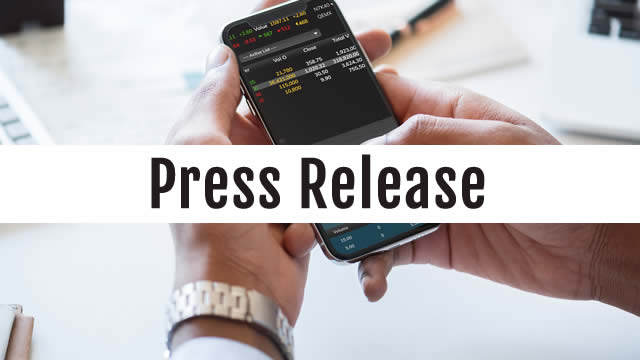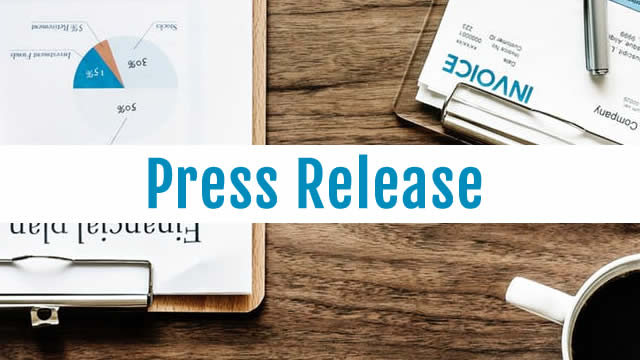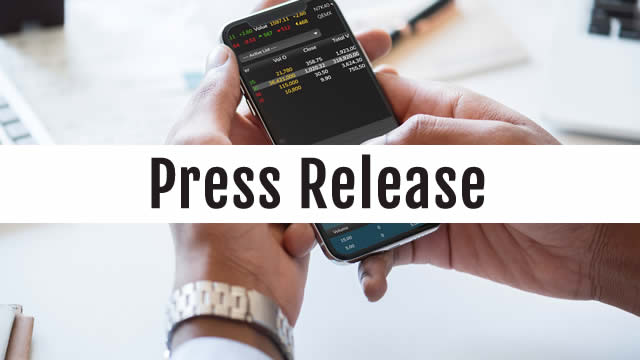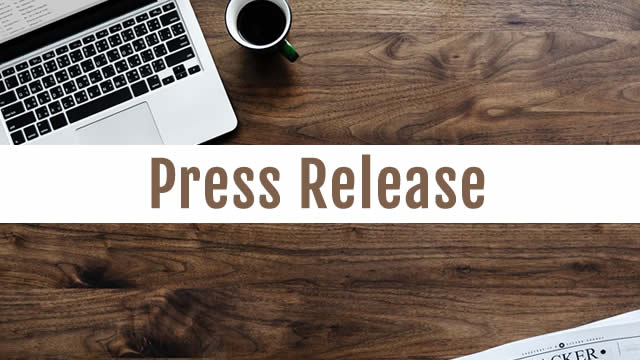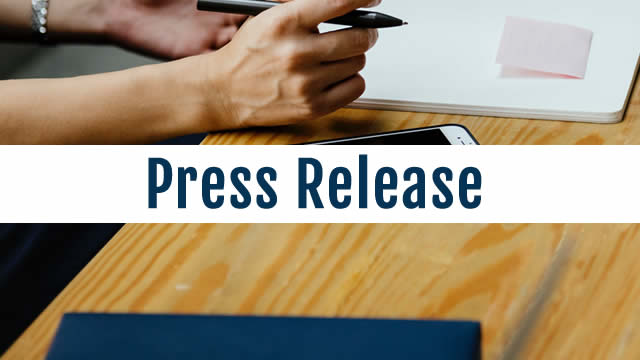RDHL Stock Recent News
RDHL LATEST HEADLINES
The New York Supreme Court has awarded RedHill approximately $1.82 million in legal costs and expenses following, and in addition to, the Court's prior summary judgment of approximately $8.25 million in favor of RedHill in its action against Kukbo Co. Ltd's ("Kukbo"); the $8.25 million and $1.82 million awards include 9% ongoing statutory interest accrual RALEIGH, N.C. and TEL-AVIV, Israel , Aug. 20, 2025 /PRNewswire/ -- RedHill Biopharma Ltd.
RedHill has received its first Talicia sales milestone payment as well as royalties and other payments, totaling $1.1 million, following the first ex-U.S. commercial launch of Talicia in 2024 Talicia is the first FDA-approved rifabutin-based product specifically designed to treat Helicobacter pylori (H. pylori), a bacterial infection with high and rising resistance rates that affects over 50% of the world's adult population [1] and is the strongest risk factor for gastric cancer and peptic ulcer disease Talicia is the leading branded first-line therapy prescribed by U.S. gastroenterologists [2] for treatment of H.
The positive FDA feedback allows for: A novel Phase 2 RHB-204[1] study, planned to be the first ever clinical study in a specifically defined Mycobacterium avium subspecies paratuberculosis infected (MAP-positive) Crohn's disease (CD) patient population Groundbreaking approach testing MAP as a root cause of CD, supporting RHB-204 as a potential paradigm-shifting therapy treating both the suspected cause of Crohn's disease and its symptoms RedHill has initiated two new collaborations with leading academic centers utilizing cutting-edge rapid and accurate MAP detection diagnostics – the lack of which has previously been a major barrier to advancing the Company's novel anti-MAP Crohn's disease program Innovative design enables a smaller sample size allowing for lower study costs and faster time to completion Funding for this ground-breaking program expected to be non-dilutive; Grant application submitted and discussions ongoing for additional non-dilutive financing Patent protected t
Recruitment initiated into the Phase 2 opaganib plus darolutamide study in patients with advanced prostate cancer, sponsored by ANZUP, and supported by Bayer and Ramsay Hospital Research Foundation Precision medicine approach: The 60-patient Phase 2 study uses the PCPro™ lipid biomarker test to identify patients with poor prognosis most likely to benefit from the combination Led by Professor Lisa Horvath, the study is expected to recruit people at sites across Australia and New Zealand Prostate cancer is the second most diagnosed cancer in the world with around 1.5 million new cases per year, causing almost 400,000 deaths 1 . Prostate cancer market is approximately $12 billion 2 This study marks a key step in RedHill's development of opaganib in oncology, complementing its U.S. Government-supported medical countermeasures and infectious diseases programs TEL AVIV, Israel and RALEIGH, N.C.
Korea's Incheon District Court attachment grant prevents asset disposal by Kukbo prior to enforcement , following the New York Supreme Court's approximately $8.25 million plus legal fees and costs summary judgment in favor of RedHill -- The New York Supreme Court dismissed all Kukbo's counterclaims -- Latest Court victory demonstrates RedHill's commitment to collection of the court-mandated award, upon which 9% interest continues to be accruable RALEIGH, N.C. and TEL-AVIV, Israel , May 13, 2025 /PRNewswire/ -- RedHill Biopharma Ltd.
RedHill supports an independent medical education grant that includes a new two-part H. Pylori Continuing Medical Education (CME) program, developed by Medscape aimed at advancing clinical knowledge and improving patient outcomes -- The first part of the program, led by a faculty of William Chey, MD, Vivian Asamoah, MD and Shailja Shah, MD, MPH, will take place May 6 during a major U.S. gastroenterology meeting -- H.
Strong Use of Composition-of-Matter Coverage: Patent protects the molecular structure of RHB-107, providing market exclusivity beyond method-of-use claims COVID-19 Therapeutic Use: Includes coverage for treatment of SARS-CoV-2, including wild-type and emerging variants This patent grant enhances RedHill's strategic positioning in the global COVID-19 therapeutic space, a market still expected to be worth more than $3 billion in 2025[1] , and expands its patent footprint in Asia, a key pharmaceutical market RHB-107 successfully met the primary endpoint of safety and tolerability, delivering promising reduction in hospitalization efficacy results in a U.S. Phase 2 COVID-19 study[2] . Additional clinical data expected from the externally non-dilutive funded PROTECT study, supported by the U.S. Department of Defense RHB-107 is a novel, patient-friendly oral, once-daily, host-directed potential broad-acting antiviral expected to act independently of viral spike protein mutations [3] RALEIG
The Notification Letter has no immediate effect on the Company's listing on the Nasdaq Capital Market at this time, nor are the Company's business operations affected by receipt of the Notification Letter TEL AVIV, Israel and RALEIGH, N.C. , April 17, 2025 /PRNewswire/ -- RedHill Biopharma Ltd.
GLP-1 comparable efficacy: Opaganib's positive results, newly published in the journal Diabetes, Metabolic Syndrome and Obesity, demonstrated weight loss and improved metabolic markers on par with semaglutide in preclinical models -- Novel mechanism of action, formulation and administration: Opaganib is a differentiated oral, non-peptide therapeutic that targets sphingosine kinase-2 (SPHK2), potentially avoiding common Glucagon-like peptide-1 (GLP-1) inhibitor side effects and administration burdens -- Market disruptor potential: The rapidly growing global obesity-diabetes drugs market is projected to be worth around $100 billion by 2034 [1] – largely driven by GLP-1 inhibitors like Novo Nordisk's Ozempic® and Wegovy® and Eli Lilly's Trulicity®, Zepbound® and Mounjaro® -- Potential high value and de-risked development pathway: Existing human safety and tolerability data from over 470 subjects, from several clinical programs, may help expedite the FDA pathway to approval; ne
Revenue-generating with an exciting, diversified, largely externally funded, advanced development pipeline and multiple upcoming catalysts. Recent highlights: Global licensing deal (excluding North America) with Hyloris Pharmaceuticals with RHB-102 for up to $60 million in potential milestone payments Approximately $8 million plus legal costs NY Supreme Court summary judgment win against Kukbo Bayer-supported Phase 2 combination study of opaganib and Bayer's darolutamide in prostate cancer initiated Talicia ® advancement and geographic expansion: Planned UK MAA with potential for approval in 2025 Commercially launched in the United Arab Emirates (UAE) Formulary wins securing 25 million covered lives First-line therapy listing in the recently updated ACG Guideline Advancing next-generation development, RHB-204, into the first ever Phase 2 clinical study in Crohn's Disease (CD) patients who are all MAP-positive, supported by RHB-104's positive Phase 3 data showing a statistically si
